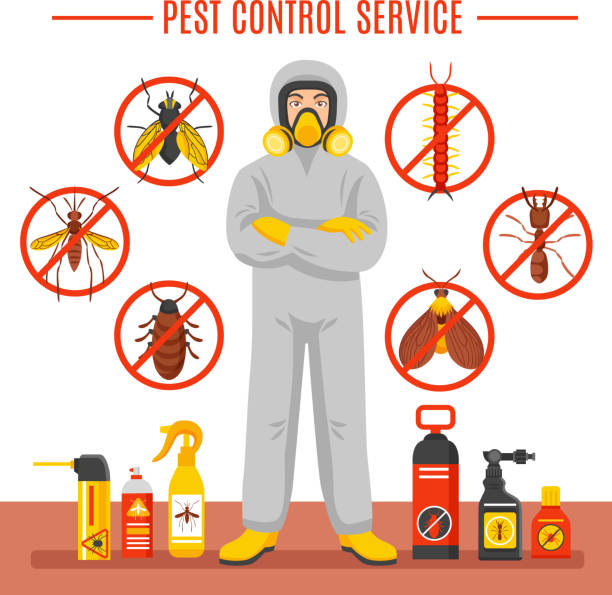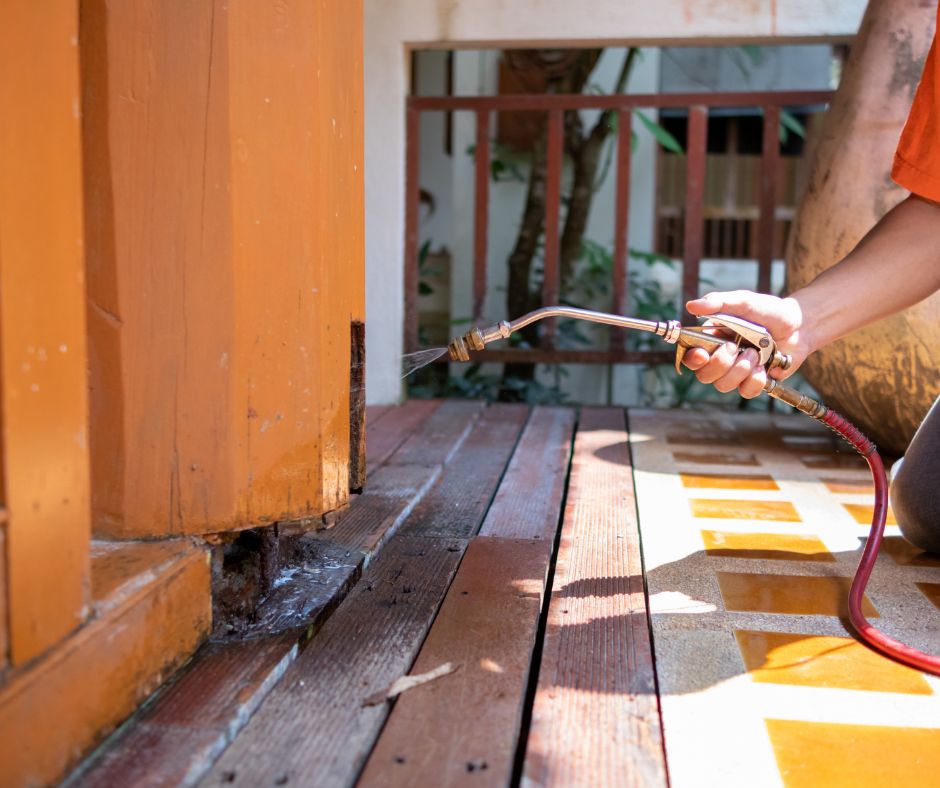Discover the Significance of Parasite Control in Keeping a Healthy Environment and Treatment Strategies

The Role of Bugs in Communities
Pests, commonly viewed exclusively as annoyances, play a complex role in ecological communities that is important for preserving eco-friendly equilibrium. They contribute substantially to different environmental processes, consisting of pollination, nutrient cycling, and insect control. As an example, many insect species, such as butterflies and , are vital pollinators for a large range of plants, which subsequently supports biodiversity and food production.
Furthermore, parasites offer as prey for various predators, creating a vital web link in food webs. This interdependence makes certain the survival of different types and aids manage populaces within environments (Termite treatment Port Charlotte). Moreover, decomposer bugs, such as specific beetles and fungis, contribute in damaging down raw material, thus enhancing soil and helping with nutrition recycling.
On the other hand, while bugs can be helpful, their overpopulation or intrusion into non-native settings might interrupt these environmental functions. This complexity underscores the relevance of recognizing bug dynamics, as efficient pest management strategies must think about both their eco-friendly functions and prospective influence on human activities. Balancing pest existence while lessening damage is crucial for maintaining the honesty of ecological communities and making certain farming productivity.
Wellness Risks Linked With Insects
The existence of insects in numerous atmospheres prolongs past their environmental functions, as they also posture considerable health and wellness risks to humans and pets. Lots of insects, including parasites, insects, and rodents, are carriers of conditions that can have serious health effects. For instance, rats are recognized to send hantavirus and leptospirosis, both of which can result in serious respiratory and renal issues, specifically.
Insects such as mosquitoes and ticks are notorious for spreading vector-borne illness like jungle fever, dengue fever, and Lyme disease. These illnesses can lead to high morbidity and mortality rates, particularly in at risk populaces. Furthermore, insects like roaches and vermins can aggravate allergic reactions and bronchial asthma, adding to breathing troubles in individuals, especially those with pre-existing problems.
In addition, the visibility of bugs can result in psychological stress and anxiety and pain, affecting general health. Contamination of food and surfaces by pest droppings and continues to be can cause foodborne health problems, highlighting the value of maintaining hygienic problems. For that reason, understanding the health risks connected with pests is crucial in identifying the need of efficient pest management approaches to safeguard animal and human wellness.

Benefits of Reliable Parasite Control
Effective parasite control is crucial for maintaining a secure and healthy atmosphere, as it consistently minimizes the many dangers related to pest problems. Among the main advantages of effective bug administration is the reduction of carcinogen. Insects such as rodents, roaches, and mosquitoes are vectors for illness that can influence both family pets and humans. By controlling these populaces, the possibility of disease transmission is significantly reduced.
Furthermore, efficient parasite control safeguards residential or commercial property and frameworks from damage. Several parasites, like termites and carpenter ants, can trigger extensive architectural damage that may require pricey repairs. By proactively taking care of these infestations, organizations and property owners can shield their investments.
One more substantial advantage is the enhancement of general high quality of life. A pest-free atmosphere adds to mental health and reduces tension connected with invasions. Reliable parasite control cultivates a more secure atmosphere for family pets and children, making certain that homes remain refuges free from damaging chemicals and disease-causing organisms.
Common Insect Control Strategies

In the realm of pest management, numerous methods are employed to deal with invasions properly. These methods can be generally categorized right into three major techniques: social, mechanical, and chemical controls.
Social control entails customizing techniques to lower pest survival, reproduction, and establishment. This might consist of plant rotation, proper cleanliness, and habitat control, which jointly create a setting much less helpful to pest proliferation.
Mechanical control employs physical approaches to eliminate bugs (Termite treatment Port Charlotte). Methods such as obstacles, vacuums, and catches are typically made use of to straight remove bugs from a location. This method is particularly efficient for taking care of rodents and bugs without the use of harmful chemicals
Chemical control includes the application of chemicals to take care of pests. These substances can be classified into insecticides, herbicides, and fungicides, each targeting certain kinds of parasites. It is find more information essential to utilize these chemicals carefully, sticking to safety and security standards and policies to lessen possible harm to non-target species and the atmosphere.
Each pest useful site control strategy has its limitations and benefits, and usually, an integrated technique incorporating numerous methods yields the finest cause keeping a pest-free environment.
Sustainable Parasite Monitoring Practices
Sustainable parasite administration practices incorporate an array of methods designed to decrease environmental influence while efficiently controlling parasite populations. These methods prioritize using eco-friendly approaches over chemical pesticides, thereby minimizing the threat of damage to non-target species, consisting of beneficial bugs, wild animals, and human beings.
Integrated Bug Management (IPM) is a foundation of lasting practices, incorporating biological, cultural, mechanical, and chemical methods to take care of pests. For instance, biological control includes introducing all-natural predators or bloodsuckers to suppress bug populations. Social practices, such as plant turning and polyculture, disrupt pest life cycles and enhance community resilience.
Mechanical methods, such as barriers or catches, can efficiently protect against insect accessibility without chemical intervention. Furthermore, keeping healthy and balanced environments via proper dirt management, plant health and wellness, and biodiversity can naturally reduce insect concerns.
Education and learning and recognition are essential components, encouraging communities and individuals to acknowledge parasite hazards early and implement safety nets. Termite treatment Port Charlotte. By fostering an alternative strategy that balances parasite control with environmental integrity, sustainable bug management methods not only protect crops and structures however also contribute to a healthier atmosphere for future generations
Final Thought

Understanding the health dangers associated with bugs is vital in acknowledging the necessity of efficient insect monitoring methods to guard human and animal health.
Efficient bug control is crucial for maintaining a secure and healthy atmosphere, as it continually reduces the many dangers associated with bug problems.Integrated Parasite Administration (IPM) is a foundation of lasting techniques, incorporating organic, cultural, mechanical, and chemical techniques to manage insects. By understanding the function of parasites, recognizing affiliated wellness dangers, and utilizing diverse treatment strategies, a lasting technique to pest monitoring can be accomplished. Integrated Insect Monitoring (IPM) emphasizes an all natural methodology that alleviates injury to useful microorganisms while effectively managing parasite populations.